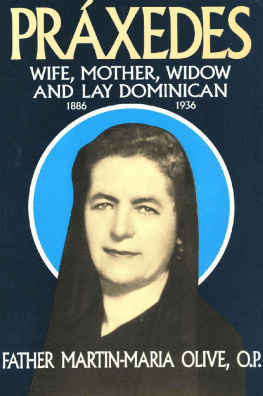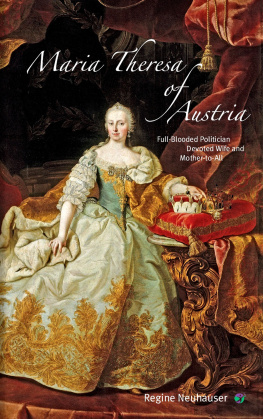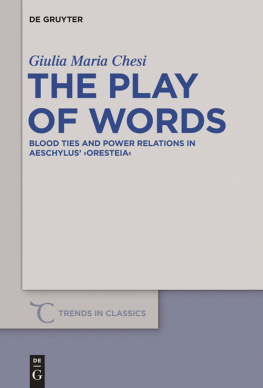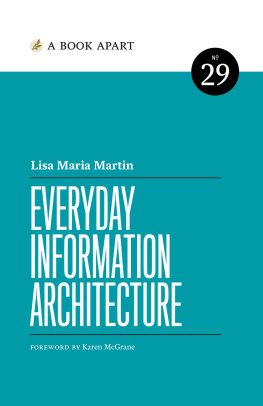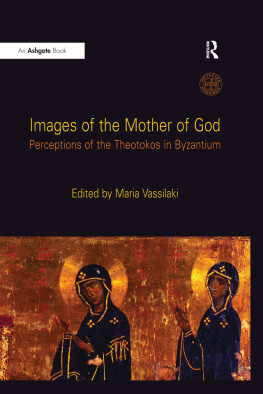Rev. Fr. Martin-Maria Olive - Praxedes: Wife, Mother, Widow, and Lay Dominican
Here you can read online Rev. Fr. Martin-Maria Olive - Praxedes: Wife, Mother, Widow, and Lay Dominican full text of the book (entire story) in english for free. Download pdf and epub, get meaning, cover and reviews about this ebook. year: 2015, publisher: TAN Books, genre: Non-fiction. Description of the work, (preface) as well as reviews are available. Best literature library LitArk.com created for fans of good reading and offers a wide selection of genres:
Romance novel
Science fiction
Adventure
Detective
Science
History
Home and family
Prose
Art
Politics
Computer
Non-fiction
Religion
Business
Children
Humor
Choose a favorite category and find really read worthwhile books. Enjoy immersion in the world of imagination, feel the emotions of the characters or learn something new for yourself, make an fascinating discovery.
- Book:Praxedes: Wife, Mother, Widow, and Lay Dominican
- Author:
- Publisher:TAN Books
- Genre:
- Year:2015
- Rating:4 / 5
- Favourites:Add to favourites
- Your mark:
- 80
- 1
- 2
- 3
- 4
- 5
Praxedes: Wife, Mother, Widow, and Lay Dominican: summary, description and annotation
We offer to read an annotation, description, summary or preface (depends on what the author of the book "Praxedes: Wife, Mother, Widow, and Lay Dominican" wrote himself). If you haven't found the necessary information about the book — write in the comments, we will try to find it.
Praxedes: Wife, Mother, Widow, and Lay Dominican — read online for free the complete book (whole text) full work
Below is the text of the book, divided by pages. System saving the place of the last page read, allows you to conveniently read the book "Praxedes: Wife, Mother, Widow, and Lay Dominican" online for free, without having to search again every time where you left off. Put a bookmark, and you can go to the page where you finished reading at any time.
Font size:
Interval:
Bookmark:
Prxedes
Wife, Mother, Widow and Lay Dominican 1886 - 1936
The Life of the Servant of God Prxedes Fernandez
Father Martin-Maria Olive, O.P .
Approbation of the Spanish edition:
Nihil Obstat: | Fray Jose Luis Gago, O.P. |
Fray Emilio Rodriguez, O.P. | |
Imprimi Potest: | Fray Candido Aniz, O.P. |
Provincial Prior | |
Imprimatur: | Dr. D. Constancio Palomo |
Vicar General | |
Salamanca | |
November 26, 1980 |
Approbation of this English translation:
Nihil Obstat: | Rev. John .P. Zenz | |
Censor Deputatus | ||
Imprimatur: |
| Edmund C. Szoka |
Archbishop of Detroit | ||
September 5, 1987 |
The Nihil Obstat and Imprimatur are official declarations that a book or pamphlet is free of doctrinal or moral error. No implication is contained therein that those who have granted the Nihil Obstat and Imprimatur agree with the contents, opinions or statements expressed.
Translated from the Spanish Praxedes ( 1886-1936 ): Mensajera de reconciliation , by Martin-Maria Olive, O.P., translation and adaptation of Gabino Prieto Cienfuegos, published in 1980 by Secretariado Praxedes, Claudio Coello, 141, Madrid 6, Spain.
This translation copyright 1987 by TAN Books.
Library of Congress Catalog Card No.: 87-50548
ISBN: 0-89555-309-0
All rights reserved. No part of this book may be reproduced or transmitted in any form or by any means, electronic or mechanical, including photocopying, recording, or by any information storage or retrieval system, without permission in writing from the publisher.
TAN Books
Charlotte, North Carolina
www.TANBooks.com
1987
PRAYER
Heavenly Father, Thou didst inspire Praxedes with purest charity in her several states of life. Grant that she who served Thee faithfully on earth may be our helper in Heaven. Hasten the day of her beatification, and grant us the favor we now ask, through Jesus Christ our Lord. Amen.Please report notable favors received through Praxedes' intercession to the Dominican Fathers at:
PostulationSanta Sabina Convent
Aventino
00153 Rome
Italy
Letter to the Author
From the Secretary of State
Of His Holiness Paul VI
Secretary of State
N. 200136
December 28, 1971
Reverend Father:
The book that you have just dedicated to "Praxedes Fernandez" has been received by the Holy Father through the mediation of her son, also a Dominican, Father Enrique Fernandez, of Los Angeles, California, and has been received with great benevolence by His Holiness, who has entrusted me with delivering his intense gratitude to the two of you.
The Holy Father is very happy that this biography, so well documented, has been written, and will be presented to the Christian people of God for their edification. He is very desirous that members of the laity who have lived lives of heroism and Christian virtue in obscurity and simplicity will be proposed for the honors of the altar. This is, it seems, the case with this humble woman from among the Asturian people of God, and whose diocesan informative process for her beatification has been completed and presented to the Sacred Congregation for the Causes of Saints.
His Holiness congratulates you for your work and wishes that this work will be well and enthusiastically received by many readers, thus making well known this beautiful woman, daughter, wife and mother of miners.
With all his heart and benevolence, he sends the fortunate son of such a mother, and you, the Apostolic Blessing.
Please accept, Reverend Father, the assurance of my religious affection.
J. BenelliSubstit.
[This letter was received by Father Olive on the publication of his book , Praxedes, 1886-1936 L'Evangile vecu en pleine violence revolutionnaire [Ed. Oeuvres de la Grotte, Lourdes, 1970], of which this is simply an extract originating with the same author. )
CONTENTS
PREFACE
Praxedes Fernandez Garcia was the wife of an Asturian miner. She lived in the valley of Mieres, which has made the headlines as the scene of strikes and disturbances. It is difficult to imagine that in that environment, which is considered revolutionary, a woman has been able to sanctify herselfshe who had endured such hardships not only in her home, but in an atmosphere which was considered anti-christian. But nevertheless, in one of the homes in this valley, in this difficult environment, there was a woman who was sincerely growing and maturing in the love of God in a most extraordinary way, leaving a seal of authentic Christianity.
Those were difficult times that Praxedes experienced during the tragic revolution of October, 1934. In Asturias it was particularly violent. And the marvelous thing was not that she did extraordinary things, but that she was able to keep her simplicity and love in the midst of that civil war in her beloved country, where there was such hatred between brothers, sons of the same motherland. She was able to be kind to everyone, preaching more with her example than by word. She was able to give an authentic testimony of her faith, of feminine sensibility and Christianity.
Someone has said that the beatifications and canonizations, especially of foundresses and founders of religious families, are excessive, that they have lost the significance that they had in the past. I do not believe that I can accept that conclusion without distinctionalthough I am convinced that in our day, in this secularized society, the world needs, over and above those past testimonies that will always have value, other signs that better adapt to its psychology.
Those simple and human saints, who knew how to live a normal life with others, who suffered the same misunderstandings and injustices, knew how to sanctify themselves through these very experiences. Therefore, this wife of a miner is a testimony for Christians of today. She is that sign that the generation of today needs to help it come closer to God and to the faith which not only offers future happiness, but has power to illumine and soften with its charity all the experiences in the lives of the people of God.
I not only know personally the environment that she lived in, but I have, as Archbishop of Oviedo, had the pastoral responsibility of those Asturian mining districts. I understand perfectly how Praxedes lived, her greatness and heroic love, and am inspired that she was able to supersede so much misery and violence. Much or all of this was blamed unjustly on the miners, but in reality was instigated by others. They and their fathers before them had had to work in truly inhuman conditions. Today, thanks be to God, this has changed considerably in the last few years. These conditions had to be faced, and those who were provoking a revolution took advantage of the situation. The miners neither wished nor fomented what happened to their beloved country, at least in the majority of cases.
The publication of the life of this Servant of God, Praxedes Fernandez Garcia, is fitting because she was one who knew and wanted to be, in cooperation with God's grace, a living presence of the Gospel in those difficult surroundings. It is very interesting, according to my judgment, that for the Church and for the rest of the world, that through this life, the "black legend" that has grown around the Asturian miners will be exposed and disappear.
There were more good Christians among the miners than it popularly seemed. Moreover, from many of the families there have been many vocations to the priesthood and religious life. I can assure you, for I saw it during my years of service in Asturia, that the priests from these families are more sensitive to the injustices of this world, and know how to give themselves to the evangelization of all with extraordinary zeal.
Next pageFont size:
Interval:
Bookmark:
Similar books «Praxedes: Wife, Mother, Widow, and Lay Dominican»
Look at similar books to Praxedes: Wife, Mother, Widow, and Lay Dominican. We have selected literature similar in name and meaning in the hope of providing readers with more options to find new, interesting, not yet read works.
Discussion, reviews of the book Praxedes: Wife, Mother, Widow, and Lay Dominican and just readers' own opinions. Leave your comments, write what you think about the work, its meaning or the main characters. Specify what exactly you liked and what you didn't like, and why you think so.

